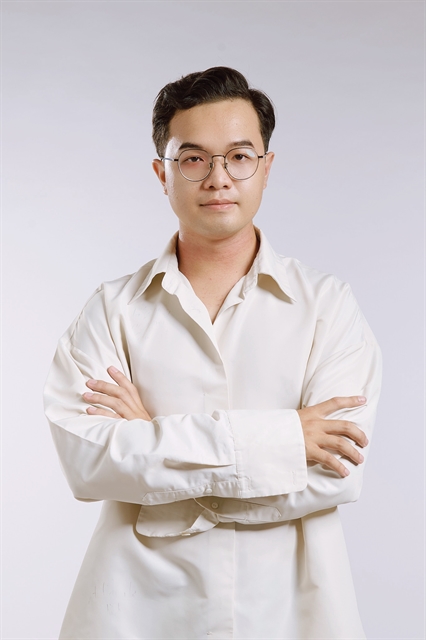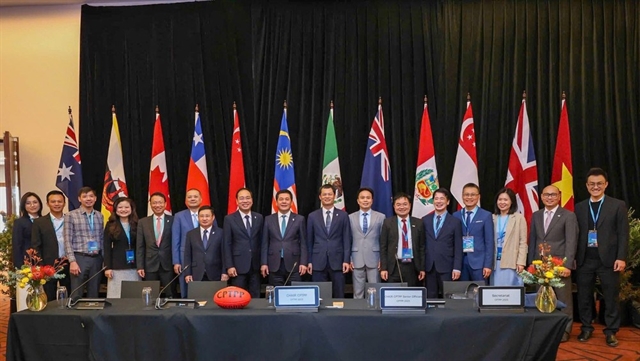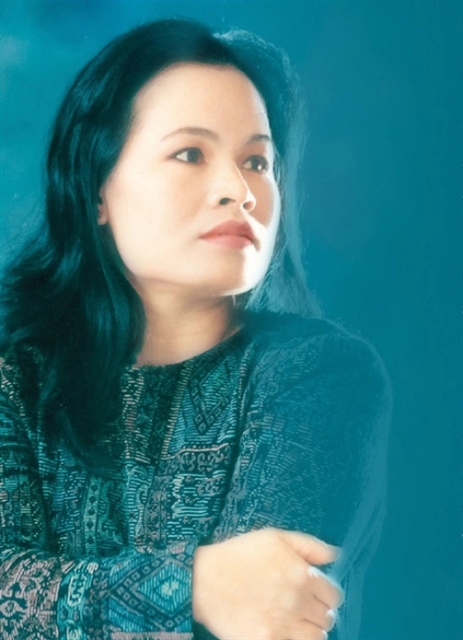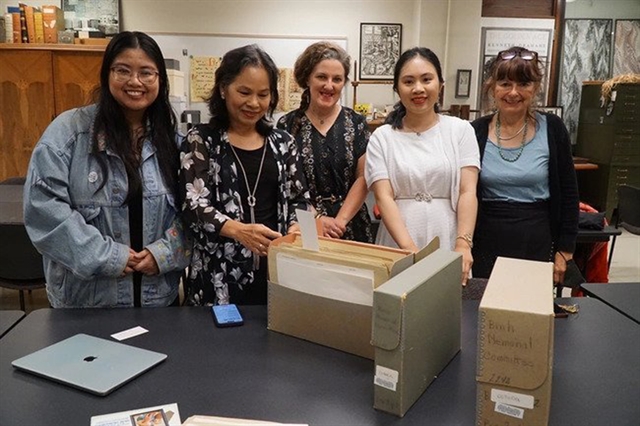 Inner Sanctum
Inner Sanctum

Author Trầm Hương, vice president of the Hồ Chí Minh City Writers Association, has made her mark on today's revolutionary literature. For decades, she has been silently following the footsteps of heroes, soldiers, and hero mothers to find inspiration for her books. Khôi Nguyên Thảo, reporter of the Thể Thao & Văn Hóa (Sports & Culture) newspaper, interviews her.
 |
| Author Trầm Hương, born and raised in Bến Tre, is the Vice President of the Hồ Chí Minh City Writers Association. — Photo courtesy of Trầm Hương. |
Inner Sanctum: Why do you constantly pursue the topic of war in literature?
When I was a child, my mother told me about the sacrifices of my paternal and maternal relatives. My grandfather fought against the French, and was captured by the enemy, and tortured to death. My mother's stories about the fallen soldiers still haunt me.
When I was a student at the Faculty of Horticulture at Cần Thơ University, I visited Côn Đảo Island (formerly a French prison) in 1983 and felt emotional. In the midst of graves, I wonder whether everyone has a life. How come there are such brave persons who dared to sacrifice for the homeland, and what is left are unknown graves?
Many readers asked why I wrote so much about sacrifice and loss, about war martyrs. It is because those who sacrifice for the nation are so noble. There are miraculous people who achieved extraordinary victory, becoming heroic and indomitable inspirations in history. I would feel guilty if I did not rewrite those stories while living in peace.
Inner Sanctum: You just returned from a trip to the United States to do research about Nguyễn Thái Bình, a slain Vietnamese anti-war student. What made you dedicate your time to this historical figure?
 |
| Author Trầm Hương (2nd left) searched for war martyr Nguyễn Thái Bình's documents at the University of Washington's library in Seatle, the United States in June 2023. Photo courtesy of Trầm Hương. |
In 2010, I met Lê Thị Anh, the mother of war martyr Bình to write Nguyễn Thái Bình and His Mother's Lullaby. Hearing her telling stories was so touching. When I expressed my intention to write a book about him, Anh gave me Bình's diary, hoping that I would read it carefully to comprehend and accurately describe him. She hopes that as a writer, I will be able to make this diary into a widely read literary piece.
I made contacts with many of the friends he mentioned in his diary. In early 2023, I met author Michael Robert Dedrick, who went to Việt Nam to write a book about the special task force of the liberation army operating in Sài Gòn. He told me that the University of Washington, where Bình had studied, still kept valuable documents about him.
I decided to fly to Seattle to meet the documentary curator, and it was deeply emotional when I saw every page of documents about him carefully preserved by the school library. I will soon publish this book.
Inner Sanctum: In current non-fiction, war is a common theme, especially by historical witnesses. Does this make writers competitive?
The good news is that I constantly encourage war witnesses to write their own narratives, since their memoirs are a part of history. These pages preserve memories of the times they lived and fought, which leaves a priceless legacy for their offspring.
Inner Sanctum: Non-fiction writing is challenging, since not all real-life stories translate well into writing. How can we avoid overwhelming a book with narrative?
The characteristics that the writer should have are bravery and profound background knowledge. Svetlana Alexievich's book The Unwomanly Face of War is just "telling stories”. She met hundreds of people going through the war, from cities to rural areas, from intellectuals to farmers, from people holding guns to people curing wounded soldiers, to listen to their stories.
What makes readers fall deeply in love with Alexievich's book is that she sympathises with the unknown war, and that war still continues, even in peace, because the puzzle of human fate is not easy to solve even after war ends.
With sympathy for misery and a desire for justice and beauty in life, the writer’s mission is to find those unknowns through their work.
Inner Sanctum: Why did you choose epic poetry as the genre for your upcoming work, Flower of Water?
Epic poetry is just a subgenre of poetry, and flowers on the water are metaphors for the fates and sacrifices of women across the country during the war. Although many women did not leave behind a photo, I feel like their souls still exist on earth, incarnated into flowers. My burning desire to write was alight for more than 30 years, and I eventually stopped being a perfectionist and just started writing.
These epic poems are like incense I send to the women who sacrificed for our homeland, and also the way that I sympathise with women who are living and dedicating themselves, despite suffering mistreatment and oblivion. VNS